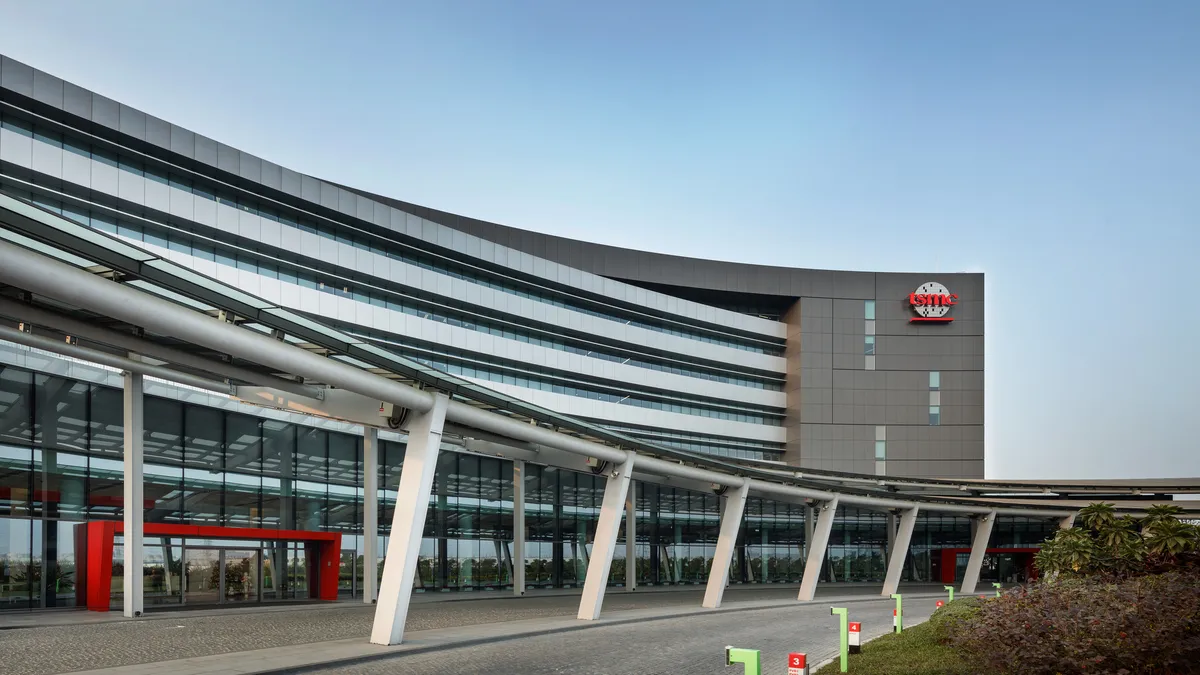Dive Brief:
- Taiwan Semiconductor Manufacturing Co. will tighten its capital spending plans by at least 10% due to declining demand for chips and delivery issues with some chipmaking equipment.
- The chipmaker, a major Apple supplier, now expects capital expenditures for 2022 to be around $36 billion, CFO Wendell Huang said on an earnings call last Thursday. Three months ago, TSMC expected spending to be on the lower end of $40 billion to $44 billion.
- Lower spending targets not only reflect a drop in demand for consumer electronics, but also supplier delivery delays of tools essential for making TSMC’s powerful 3-nanometer technology, which is on track to go into production later this year.
Dive Insight:
After scrambling to ramp up semiconductor capacity last year, chipmakers are now reversing course as demand declines for smartphones, PCs and other consumer electronics.
Despite reporting a 47.9% YoY increase in revenue, TSMC will still take a conservative approach to capital expenditures as it expects customers to trim orders, CEO C.C. Wei said on the call.
“On the demand side, we continue to observe softness in consumer end market segment,” he said, adding that demand in data center and automotive segments remains steady for now.
To offset weakened demand in the consumer market, TSMC has focused its efforts on more cutting-edge technologies. The company is allocating between 70% to 80% of its $36 million capital expenditure budget to advanced process technologies.
“We expect our business to be less volatile and more resilient than the overall semiconductor industry,” Wei said, noting that the company’s “technology leadership and differentiation is much stronger today as compared to previous years.”
But broad-based tool shortages are challenging TSMC’s ability to capitalize on higher demand for more powerful technologies. The company is grappling with delivery delays of photolithography tools and other supplies that are needed to produce its 3-nanometer technology, known as the N3, which will become TSMC’s most advanced semiconductor process node when introduced.
Competitor Samsung in June became the first to manufacture chips using the 3-nanometer process, and the company touted the technology’s capability for higher performance with greater energy efficiency.
TSMC is working with its tool supplier to address delivery challenges and ramp up 3-nanometer capacity to meet demand in 2023 and beyond.
“Our customers' demand for N3 exceeds our ability to supply partially due to the ongoing tool delivery issues," Wei said. "We expect N3 to be fully utilized in 2023."














